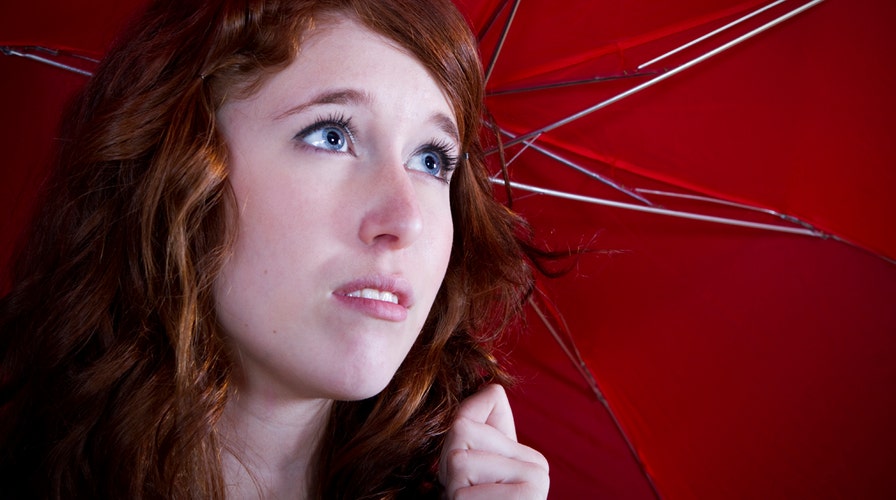Do you have a weather-induced phobia?
Snow, flooding and freezing temperatures can send anxiety skyrocketing. In fact, one in 10 people has a weather-related phobia. Dr. Manny talks with an expert about what to do if you’re one of them
Wicked weather can unnerve even the calmest people. Mental health professionals say it’s OK— to a degree.
“People have feelings of being fearful, being anxious towards things that happen in everyday life and it’s adaptive for us because it gives us that flight-or-fight response,” Dr. Joe Taravella, a licensed clinical psychologist at New York University Langone Medical Center’s Rusk Rehabilitation, told FoxNews.com.
It’s when those fears turn into phobias that trouble begins.
"When we have a phobia, it's a very significant and intense fear,” Taravella said. “So, take that fear and multiply it by 100 and, it is so intense that people sometimes feel like they're having a panic attack, they're going to die."
Some research has found that as many as one in 10 people suffer from a severe weather-related phobia. Experts agree that one of the best steps you can take to lessen anxiety is to make a plan— the logic being that you can’t change the weather, but you can change the way you react to it.
“Say we have a blizzard coming. People might have a mild amount of fear or anxiety associated with that,” Taravella said. “So, in their plan they might get batteries, they'll stock up on food, they'll have flashlights ready and candles and that plan will alleviate and help their fear and anxiety for that upcoming event."
Staying informed is a part of the planning process, but being plugged in 24/7 may not be in your best interest. Taravella recommends limiting yourself to watching the news every couple of hours.
While the storm is underway, being a little anxious is normal, but planning ways to pass the time can help you deal with the situation. When you’re unable to go outside, use the time to regroup, spend time with your kids and avoid your phone, Taravella said.
Once the storm passes, if you don’t feel that anxiety lessen, it may be time to ask for help.
“If you feel that you're having difficulty sleeping, you have an exaggerated startle response where you're always jumping if the phone rings or if the doorbell rings or if somebody calls your name,” Taravella said. “These are some of the signs and symptoms that this really is lingering for you and something should be done."
Taravella noted that it’s important to make sure you don’t spread your anxiety to your kids, as they can pick up on your fear.









































